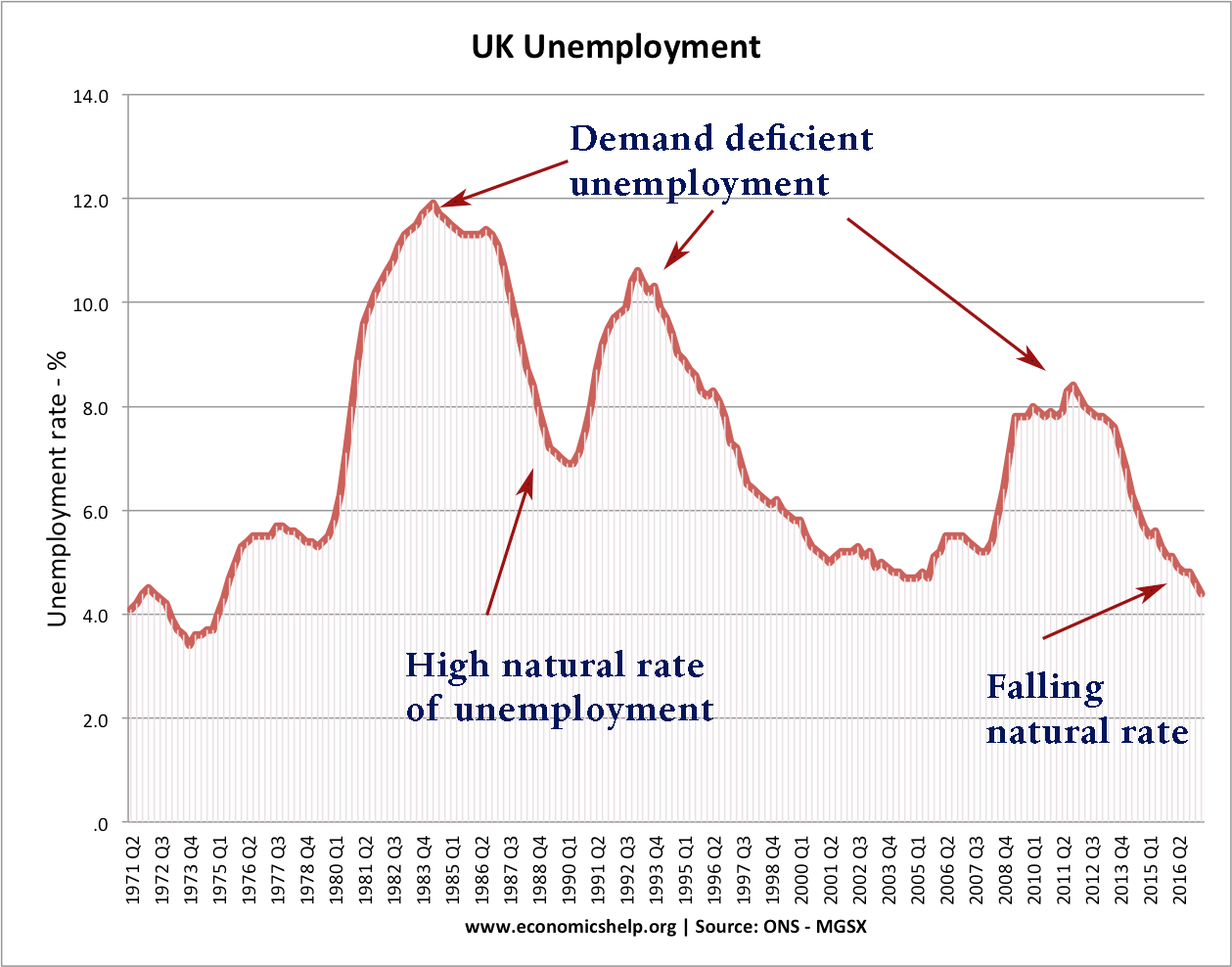The Role of Aggregate Demand in Reducing unemployment
Evaluate the importance of managing aggregate demand (AD) to bring about a sustained reduction in the rate of unemployment in the UK economy. In 1992 Unemployment in the UK rose to 3 million. A significant part of this unemployment this was due to the recession of 1992. In a recession, demand deficient unemployment will increase. …

